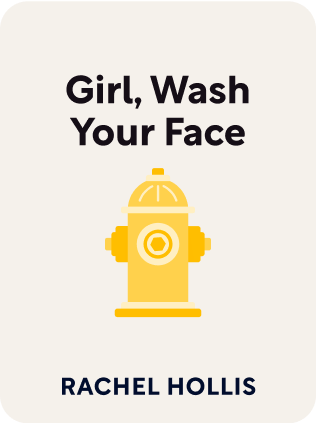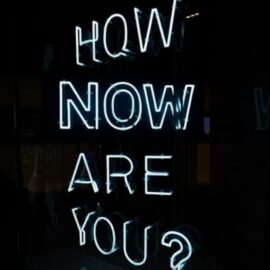

This article is an excerpt from the Shortform book guide to "Girl, Wash Your Face" by Rachel Hollis. Shortform has the world's best summaries and analyses of books you should be reading.
Like this article? Sign up for a free trial here .
What is Lie 3 from Girl, Wash Your Face? How can you overcome feelings of inadequacy?
Girl, Wash Your Face by Rachel Hollis is about the 20 lies we’re told by society and that we tell ourselves and how to overcome them. Lie 3 is telling yourself, “I’m not good enough.” A drive for accomplishment can cause emotional and physical harm if it stems from a place of never feeling good enough.
Read on to learn more about lie 3 and how to get rid of those feelings that you’re not good enough
Lie 3: I’m Not Good Enough
Girl, Wash Your Face‘s Lie 3 is telling yourself, “I’m not good enough”. A drive for accomplishment can cause emotional and physical harm if it stems from a place of never feeling good enough. These feelings of inadequacy are often rooted in childhood and can make you feel like you’re falling short at home, work, or in any other area of your life.
Rachel Hollis and Workaholism
The author shares her struggle with workaholism and lie 3 to illustrate this concept and show other women that it’s important to take care of yourself, listen to your body, and accept that they are good enough. She often felt compelled to work nonstop until she was ill, exhausted and even angry. This is a problem she’s constantly working on.
Part of this stems from a good place: She loves her job. Her team is great to work with and her work is fulfilling. Her dream of lifting up other women is succeeding and she is rewarded by the online and offline support she receives.
Part of her workaholism, however, stems from a place of insecurity. Her home life can be chaotic; raising four young children and maintaining a good relationship with her husband is hard (she wrote this before their divorce). So when choosing between success and rewards at work and the difficulties and chaos of home life, she got in the habit of turning to work. She felt like a success at work and a failure at home, so she chose to work more.
Getting to the Root
This obsession with and drive for accomplishment is rooted in her childhood. As the youngest of four children with unhappily married parents, she was largely ignored. She realized that success — good grades, scoring in the soccer game — brought attention. But the moment the praise went away, she stopped feeling liked and accepted. In order to be loved, she felt she needed to produce something. Her lie 3 stemmed from childhood.
In adulthood, this deep-seated belief led to a drive for constant achievement without enjoying any of the victories — just heading to the next goal. This frantic need to achieve began affecting her health. In times of work and relationship stress she developed facial paralysis (Bell’s Palsy). Later she developed debilitating vertigo and no doctor could find the cause.
Finally, a homeopathic doctor pinpointed the problem: she was doing too much and had to slow down — an idea that terrified her. This news was life-altering. Hollis realized the irony: she spent her days helping women live a better life and she wasn’t doing the most fundamental thing — taking care of herself.
She made drastic life changes to learn to rest and relax, including cutting her hours at the office. Hollis volunteered, took a dance class, and searched for things that brought her joy and peace. She spent more play time with the kids and more couple time with her husband. She spent time in therapy and prayer. Finally, she stopped obsessing over the next accomplishment and learned to celebrate the current victory.
Through this sometimes difficult process, she ultimately grasped that she was loved, worthy and enough — as is.
Tips on Learning to Feel “Good Enough” and Beating Lie 3
In your journey toward overcoming lie 3 and feeling good enough and taking proper care of yourself, think about these strategies:
- Therapy: The author found therapy crucial in helping understand the connection between childhood insecurities and adult accomplishments, helping her realize her drive for accomplishment could be harmful.
- Work hard for joy: Work as hard for the fun moments — call a friend, take a walk — as your other commitments. The work will be there when you get back, and you’ll be re-energized.
- Put yourself on your priority list: Ensure you’re getting enough sleep, nutrition, and water. You can’t take care of everyone else without first taking care of yourself.

———End of Preview———
Like what you just read? Read the rest of the world's best book summary and analysis of Rachel Hollis's "Girl, Wash Your Face" at Shortform .
Here's what you'll find in our full Girl, Wash Your Face summary :
- Why you should accept that life can be messy
- How seeing that you're in control of your life can help you live more joyfully
- The 20 lies you might be telling yourself






